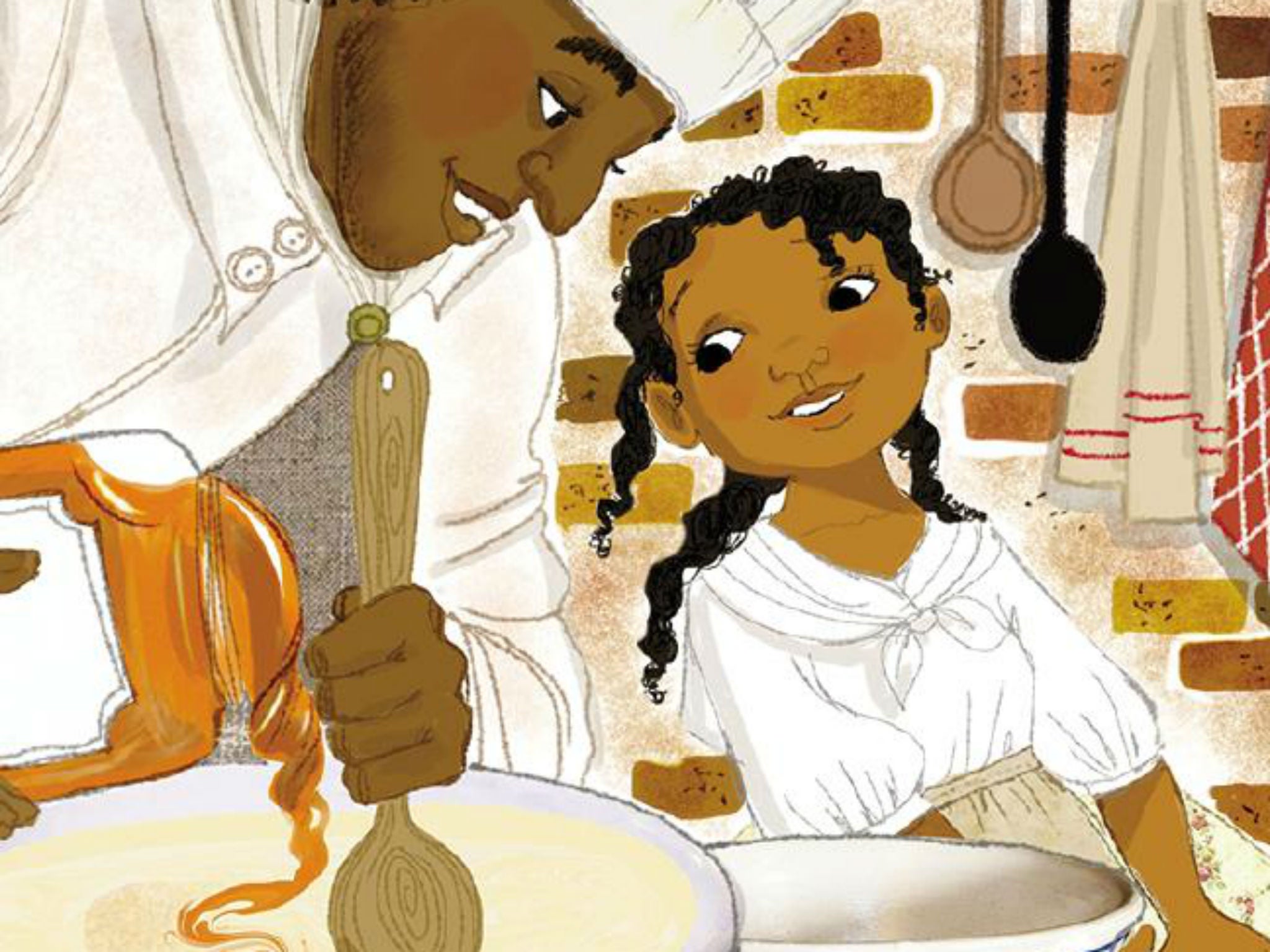A Birthday Cake for George Washington: Children's picture book pulled for 'insulting' depiction of upbeat slaves
Author Ramin Ganeshram has published a blog post insisting that the book 'does not take slavery's horror for granted'

Your support helps us to tell the story
From reproductive rights to climate change to Big Tech, The Independent is on the ground when the story is developing. Whether it's investigating the financials of Elon Musk's pro-Trump PAC or producing our latest documentary, 'The A Word', which shines a light on the American women fighting for reproductive rights, we know how important it is to parse out the facts from the messaging.
At such a critical moment in US history, we need reporters on the ground. Your donation allows us to keep sending journalists to speak to both sides of the story.
The Independent is trusted by Americans across the entire political spectrum. And unlike many other quality news outlets, we choose not to lock Americans out of our reporting and analysis with paywalls. We believe quality journalism should be available to everyone, paid for by those who can afford it.
Your support makes all the difference.A children’s picture book about slaves baking a birthday cake for George Washington has been pulled from shelves after an angry backlash over its upbeat tone.
A Birthday Cake for George Washington was released on 5 January and tells the story of the first US president’s slave cook Hercules and his daughter Delia. To date, it has racked up over 100 one-star reviews on Amazon’s website while also sparking fury on social media over what many readers see as the “disgustingly inaccurate, insulting” sugar-coating of a brutal part of history that “sprinkles glitter on rape, murder, torture and servitude”.
Publisher Scholastic apologised after concluding that the book “may give a false impression of the reality of the lives of slaves”. Distribution has ceased and all returns will be accepted.
A statement read: “While we have great respect for the integrity and scholarship of the author, illustrator, and editor, we believe that, without more historical background on the evils of slavery than this book for younger children can provide, the book may give a false impression of the reality of the lives of slaves and therefore should be withdrawn.
“Scholastic has a long history of explaining complex and controversial issues to children at all ages and grade levels. We do not believe this title meets the standards of appropriate presentation of information to younger children, despite the positive intentions and beliefs of the author, editor and illustrator.
“Scholastic provides a wide variety of fiction and informational books and magazines which teachers, parents and children rely on, including many devoted to African American experience, history and culture. We are committed to providing books, magazines and educational materials that portray the experience of all children, including those from diverse communities and backgrounds and we will continue to expand that commitment through our global publishing channels.”
Scholastic had originally sold the story with the following description: “Everyone is buzzing about the president’s birthday! Especially George Washington’s servants, who scurry around the kitchen preparing to make this the best celebration ever. Oh how George Washington loves his cake! And oh, how he depends on Hercules, his head chef, to make it for him. Hercules, a slave, takes great pride in baking the president’s cake. But this year there is one problem — they are out of sugar.
“This story, told in the voice of Delia, Hercules’s young daughter, is based on real events, and underscores the loving exchange between a very determined father and his eager daughter, who are faced with an unspoken, bittersweet reality. No matter how delicious the president’s cake turns out to be, Delia and Papa will not taste the sweetness of freedom.”
Author Ramin Ganeshram, illustrator Vanessa Brantley-Newton and editor Andrea Davis Pinkney included additional historical notes but failed to include them in the main story.
Davis-Pinkney published a blog post in response, insisting that A Birthday Cake for George Washington “does not take slavery’s horror for granted” and “offers children and adults ‘a way in’ as they speak to those issues”.
Ganeshram also wrote a blog post, emphasising that she had researched the book for four years and “thought long and hard about each word and depiction”.
“Bizarrely and yes, disturbingly, there were some enslaved people who had a better quality of life than others and ‘close’ relationships with those who enslaved them,” she said. “But they were smart enough to use those ‘advantages’ to improve their lives.”
Controversy over A Birthday Cake for George Washington follows a similar uproar last year over the publication of Emily Jenkins and Sophie Blackall’s picture book, A Fine Dessert.
Jenkins apologised for the story, featuring a smiling slave mother and daughter preparing a blackberry fool for their master, acknowledged that it was “racially insensitive” and promised to donate her earnings to a diversity in literature campaign.
Similar depictions of smiling slaves were often used by slave owners to convey the ludicrous message that slavery benefitted African Americans and should be upheld.
Publisher Schwartz & Wade has kept the book in print.
Join our commenting forum
Join thought-provoking conversations, follow other Independent readers and see their replies
Comments